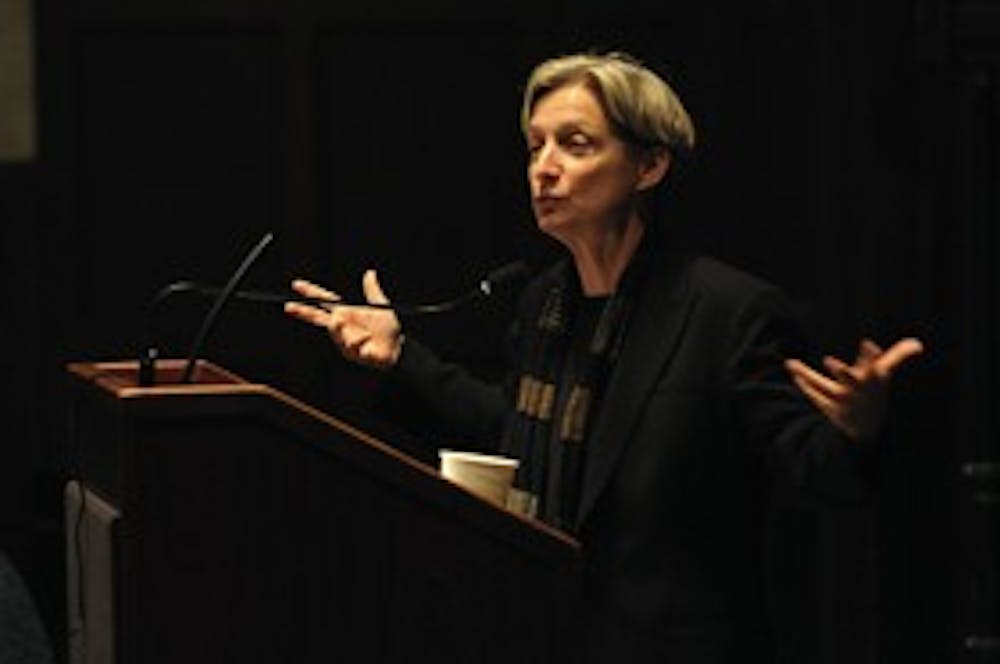
More than 400 people trekked from near and far and packed the spacious Hall of Flags to hear the Philomathean Society’s Annual Oration given by preeminent philosopher, Judith Butler.
Butler’s intellectual activities span many disciplines, including feminism, queer theory, political philosophy and ethics. The extent of her audience attested to the diversity of her work and the celebrity status she holds among scholars within and beyond her field.
As the Oration began, the room fell silent immediately. Penn senior and Philo’s Second Consul Aro Velmet welcomed everyone to the event and introduced Heather Love, professor of gender studies and English at Penn. Velmet and Philo were responsible for selecting Judith Butler for the Oration.
“Core to any intellectual activity is stirring up trouble,” Velmet said.
Love gave Butler her formal introduction. “[The Oration] was a singular opportunity to hear her speak and see how her early work transformed and continues to inform the work she’s doing now,” Love said. “Thinking through her work has helped me think at all.”
The Oration was titled “From Performativity to Precarity” and emphasized how people can re-imagine the enabling conditions of contemporary life. Butler related gender performance to mortality and explained how negotiations of power determine whose lives are livable and whose lives are unlivable. She articulated the ways in which disobedience to gender norms can result in a threatening condition, including a decreased quality of life or a literal end of life.
There is “a struggle for modes of life in which performativity fights against precarity. We struggle for new modes of existence on the critical edge of what is recognizable,” Butler said.
Butler spoke about the social conditions that act on the formation of desire and the ways in which individuals are effected by these conditions.
Julia Bloch, a Penn graduate student in English, said Butler is a “very important figure in my research and thoughts about literature and gender. Her work has helped me think about subjectivity and how literature is political.”
Wendy Hyatt, a Philadelphia artist whose recent work includes gender-neutral remakes of the Golden Girls with the all-female parts played by men, also attended the oration.
“Judith Butler is making it easier for my work to live in the world, but there’s still a long way to go,” Hyatt said.
The Daily Pennsylvanian is an independent, student-run newspaper. Please consider making a donation to support the coverage that shapes the University. Your generosity ensures a future of strong journalism at Penn.
DonatePlease note All comments are eligible for publication in The Daily Pennsylvanian.








